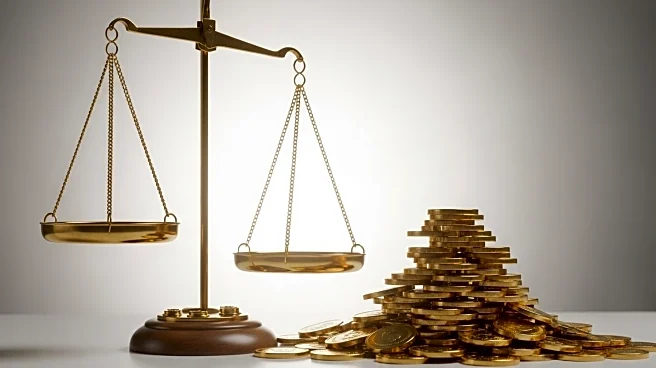What's Happening?
Treasury Secretary Scott Bessent expressed confidence that President Trump's tariff plan will be upheld by the Supreme Court. However, he cautioned that if the court rules against the tariffs, the Treasury Department would be obligated to issue substantial refunds, potentially affecting half of the tariffs collected. This warning came during an interview on NBC's 'Meet the Press.' The Trump administration has requested an expedited ruling from the Supreme Court to overturn a previous appeals court decision that deemed most of the tariffs on imports illegal. The Supreme Court's decision could take until early next summer, and delaying a ruling could result in significant financial disruption, with $750 billion to $1 trillion in tariffs already collected.
Why It's Important?
The outcome of the Supreme Court's decision on President Trump's tariffs holds significant implications for the U.S. economy and international trade relations. If the tariffs are voided, the Treasury Department would face the challenge of refunding a substantial amount, which could impact government finances and economic stability. Businesses and industries that have been affected by these tariffs may experience changes in their operational costs and competitive dynamics. Additionally, the ruling could set a precedent for future trade policies and the legal boundaries of executive power in imposing tariffs.
What's Next?
The Supreme Court's decision is anticipated by early next summer, and its ruling will determine the legality of the tariffs. If the court rules against the tariffs, the Treasury Department will need to prepare for the logistical and financial challenges of issuing refunds. Stakeholders, including businesses and trade partners, are likely to closely monitor the situation and adjust their strategies based on the court's decision. The ruling could also prompt discussions on trade policy reform and the balance of power between the executive branch and the judiciary.









